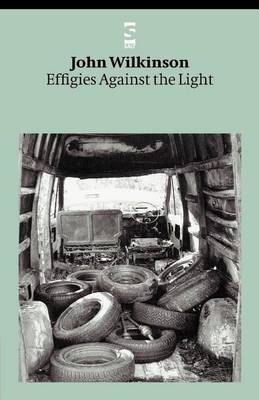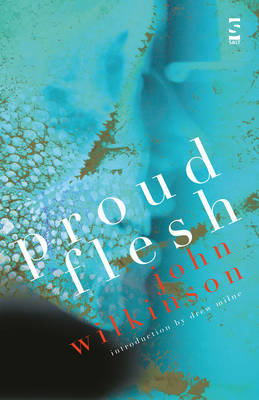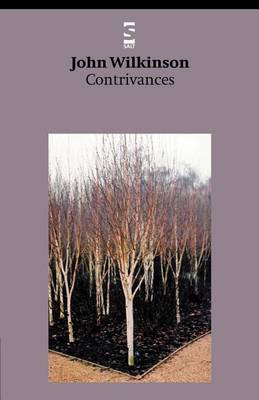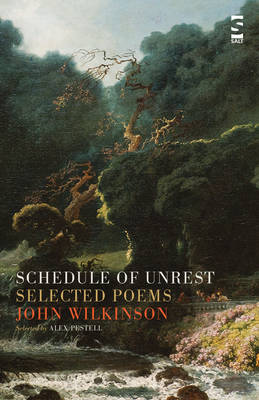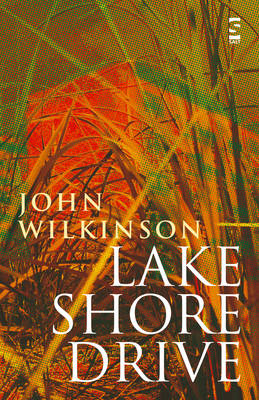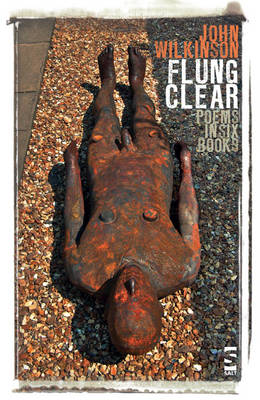Salt Modern Poets
7 total works
John Wilkinson's Down to Earth is his darkest work to date: a disturbing road poem of the American mid-West, an epic of migration, an examination of now-ubiquitous borders, and a meteorological tour of our growing energy crises. Global and internal flows of capital, consumer products, waste, labour and body parts all shape its contorted map of the 21st century.
Narrative poems echoing traditional forms, are intercut with damaged and damaging lyrics; these various styles have their analogues in the sculpture several passages praise and deprecate. In addition, Down to Earth incorporates an extended homage to Artemis of Ephasus.
Wilkinson's book forms one single thematically-interrelated poem, and although its materials are bleak, the book's caesura-driven prosody honours the hopes and courage of the people involved in mass migration and local struggles. Like every book by John Wilkinson, Down to Earth knows no limit to poetry's ambition, dodging every border post, down every highway, like the ocelot running through its narratives, and struggling to create a sheltering place in often pitiless landscapes.
Wilkinson’s searing classic, Proud Flesh, is a blistering journal of love’s intensities and convulsions. Panning across its characters like a camera, this is lyric poetry as film noire, filled with jealousy, violence and sexual obsession. Incandescent images and language play across the bodies of the lovers, each caught, frame by frame, in an intense act of surveillance.
Contrivances consists of four constellations of poems. It is characteristic of John Wilkinson's writing that each poem can be read either as self-sufficient or as interdependent with other poems in its group. Readers of his earlier books will recognise the precise resolution of these poems at a point just short of the fully-revealed.
In `Saccades' the routines of bureaucracy, commuting and consumption invade the body and psyche. The poems in this constellation interlock, engage in small local machineries, and mill unrelentingly, although spasms of malfunction permit moments of joy before self-righting functions reinstate the poems' unnerving synchromesh.
`Signs of an Intruder' consists of more informal, open and sensuously-responsive poems, although even the Tuscan landscape where several take place is invaded by forms of surveillance. The poems stretch and play between benign and malign surveillance, pleasure and regret.
`The Still-Piercing Air'is the smallest group and the most conventional in its poetic procedures. Harmless parks and public amusements, flowers and water features, lines from Shakespeare - turn malevolent as the occupants of a consciousness forced into reflection through isolation.
The final group, `Case in Point', was described by Wilkinson in introducing a reading as `neo-baroque flummery'. This describes an elaborate diction and an element of Hispano-Catholic grotesquerie acknowledged in one of the poems as `after Richard Crashaw'.
John Wilkinson's poems are intellectually ambitious, but this description of Contrivances does not convey how directly involving they can be. This may be due in part to a unusual cadence which is at once absolutely urgent and reflexively hanging. Contrivances may be his most demanding book, but it has much to offer the unfamiliar reader.
Schedule of Unrest selects from John Wilkinson’s collections of poetry published from 1974 to 2008. A growing readership is seeking ways into an impassioned and beautiful body of writing. The unfamiliarity of its surfaces and soundscapes have too long delayed its appreciation. This book, selected by a scholar of Wilkinson’s work, will further enlarge his readership, as well as providing a convenient resource for teachers. In one volume, both Wilkinson’s troubled internal lyric and the breadth of his social and political engagements are well represented.
Lake Shore Drive is John Wilkinson's most public, openly political and expansive book. By contrast with the baroque architectonics of his last Salt book, Contrivances, Lake Shore Drive is wide-ranging and variously vernacular in both scope and form, en route between New York City, Damascus, East London and the Welsh, Cornish and Indiana shorelines. Four poem clusters provide the book's binding force in asphalt and marram grass, protein receptor sites and the remembrance of corrupt data. Among these are interwoven short poems as compressed as expletives, and technicolor desertscapes, along with a gaggle of geese and dollops of general balm. This book will ensure that John Wilkinson's poetry becomes the resort of a much extended readership.
First published in 1994, Flung Clear collects John Wilkinson’s poems of the late 1980s and early 1990s, written in Birmingham and Cairo. Now recognised as a central English work of the period extending from the Miners’ Strike to the first Gulf War, Flung Clear combines political urgency, self-invention and poetical scope. The collection includes the pamphlets Hid Lip, Bones of Contention, The Speaking Twins, Stages along the Lichway and The Nile.
